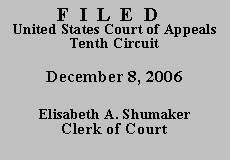

| UNITED STATES OF AMERICA, |
|
| v. | |
| WALTER LEE SPANN, |
Defendant-appellant Walter Lee Spann pled guilty to one count of possession of an unregistered sawed-off shotgun, in violation of 26 U.S.C. §§ 5861(d) and 5871. Pursuant to a written plea agreement under Fed. R. Crim. P. 11(c)(1)(C), Spann was sentenced to eighty-four months' imprisonment, followed by three years of supervised release. He appeals his sentence.
Spann's attorney, Robert Breeze, has filed an Anders brief and moved to withdraw as counsel. See Anders v. California, 386 U.S. 738 (1967). Spann has filed a response, and the government has declined to file a brief. We therefore base our conclusion on counsel's brief, Spann's response, and our own careful review of the record. For the reasons set forth below, we agree with Mr. Breeze that the record in this case provides no nonfrivolous basis for an appeal, and we therefore grant his motion to withdraw and dismiss this appeal.
BACKGROUND
Spann was originally charged with possession of a firearm by a convicted felon and aiding and abetting, in violation of 18 U.S.C. § 922(g)(1) and (2). He was found guilty by a jury and sentenced to fifteen years' imprisonment. Spann appealed his conviction and, while the case was on appeal, the government became aware of and conceded that a non-harmless constitutional error under Brady v. Maryland, 373 U.S. 83 (1963) had occurred at Spann's trial involving the government's failure to disclose the fact that a key prosecution witness had a cooperation agreement with the government. Our court accordingly issued an order vacating the district court's judgment and remanding the case for further proceedings.
The government then brought a superceding indictment against Spann, charging him with one count of possession of an unregistered sawed-off shotgun, in violation of 26 U.S.C. §§ 5861(d) and 5871. Spann then entered into a written plea agreement in which he pled guilty and his sentence was stipulated pursuant to Fed. R. Crim. P. 11(c)(1)(C) to be eighty-four months.(1) The district court subsequently accepted the plea agreement and sentenced Spann to eighty-four months' imprisonment, in accordance with the plea agreement. This appeal followed.
DISCUSSION
Under Anders, "counsel [may] request permission to withdraw [from an appeal] where counsel conscientiously examines a case and determines that any appeal would be wholly frivolous." United States v. Calderon, 428 F.3d 928, 930 (10th Cir. 2005) (citing Anders, 386 U.S. at 744). This process requires counsel to:
submit a brief to the client and the appellate court indicating any potential appealable issue based on the record. The client may then choose to submit arguments to the court. The [c]ourt must then conduct a full examination of the record to determine whether defendant's claims are wholly frivolous. If the court concludes after such an examination that the appeal is frivolous, it may grant counsel's motion to withdraw and may dismiss the appeal.
Id. (citing Anders, 386 U.S. at 744). As indicated, Spann's attorney has filed his Anders brief, Spann has filed a response and the government has declined to file a brief.
We agree with counsel that there is no nonfrivolous issue related to the sentence imposed by the district court, which was exactly the sentence stipulated in the plea agreement. Spann's response is vague and inarticulate, but appears to accuse his counsel of perjury and other unprofessional conduct, and asserts that a sixty-month sentence is appropriate. He fails to articulate, however, any reason why he should not be bound by the sentence to which he agreed. Our careful review of the record fails to reveal any basis for challenging the sentence imposed on Spann.
CONCLUSION
For the foregoing reasons, counsel's motion to withdraw is GRANTED and this appeal is DISMISSED.
ENTERED FOR THE COURT
Stephen H. Anderson
Circuit Judge
*.This order and judgment is not binding precedent except under the doctrines of law of the case, res judicata, and collateral estoppel. It may be cited, however, for its persuasive value consistent with Fed. R. App. P. 32.1 (eff. Dec. 1, 2006) and 10th Cir. R. 32.1 (eff. Jan. 1, 2007).
1.Under Fed. R. Crim. P. 11(c)(1)(C), a stipulated sentence "binds the court once the court accepts the plea agreement."